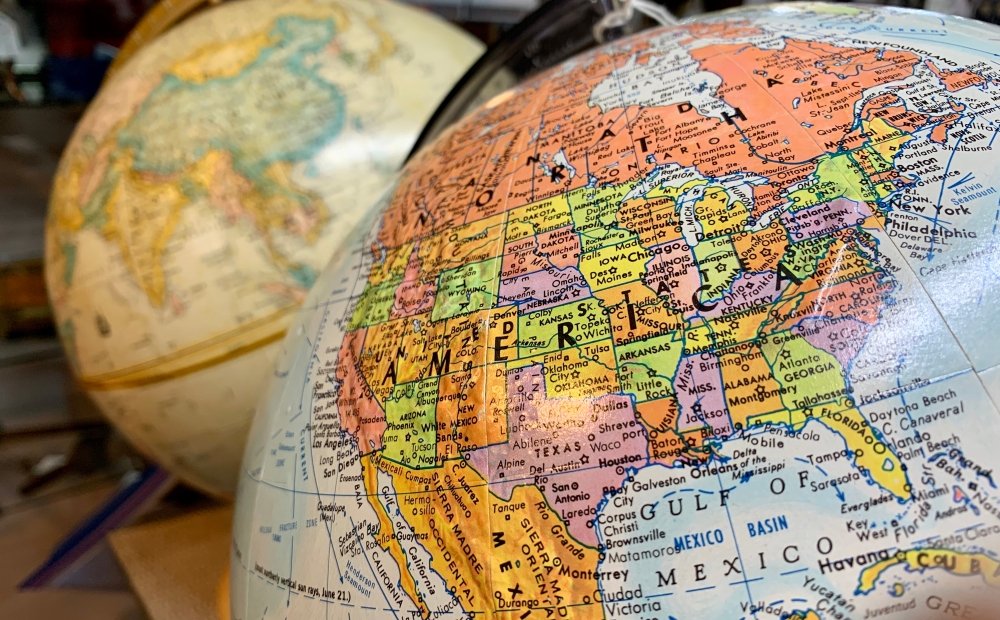Ground Truth Briefing | The 2021 North American Leaders' Summit

On November 18, 2021, U.S. President Joe Biden, Canadian Prime Minister Justin Trudeau, and Mexican President Andrés Manuel López Obrador met in Washington for a North American Leaders Summit: the first since Prime Minister Trudeau hosted President Barack Obama and President Enrique Peña Nieto in Ottawa five years ago.
As the North American leaders prepare for their first summit since 2016, listen as our experts, former U.S. Ambassador to Mexico Earl Anthony Wayne and former U.S. Ambassador to Canada David Jacobson, brief you on what to expect from the upcoming day of meetings.
Selected Quotes
Earl Anthony Wayne
"In both of those previous summits there was a very rich agenda, much of that work then ended over the last four years and so this is taking this up again in a very healthy way between the three countries, and what is very important is of course that the three leaders get along together well and set a good relationship, but that within that they give an action agenda for their teams, their government to get back to work on these really important issues whereby learning from each other, building similar approaches, we can really help prosperity emerge more quickly as we come out of this pandemic and we can help address some of the big security issues across the continent."
“On the agenda of creating prosperity, there will be a lot of meeting of the minds. I think there will be widespread agreement that we should learn the lessons from the pandemic, what happened on the border, what happened on the supply chains, that we should work to incorporate those in positive ways going forward just as how people and things cross our borders in a safer way. We clearly need to work together to better understand supply chains than any of the governments did ahead of time. We also are looking at things that I think are shared between the U.S., Mexico, and Canada is how we help our workforce get the skills they need to be well employed and support industry going forward with the continued incorporation of new technologies.”
“If you are going to change the root causes, you need to both spend money but you need to spend money wisely and you actually have to address the root causes. And as you know the Biden administration has asked for a billion dollars a year as their plan to invest in the northern tier of Central America and they're also, really for the first time, very openly going after bad governance in those countries because you cant invest in getting industries to invest. You can't create the situation where new jobs are going to be created if you don't have a good environment if you have bad government if you have a lot of corruption and so they're trying to work on all those fronts simultaneously. As you also know, very sadly, the Trump Administration cut off a number of programs that were USAID programs that were working very successfully to address problems of crime and to start to create new possibilities for jobs in different parts of those three countries. And the needs are really different in different countries and in the different parts of the countries.”
“These issues are really important for jobs in all three countries, security in all three countries, and all of us all three countries just suffer if the countries aren't trying to work through their differences and take advantage of these opportunities…I hope what we are going to see is the initiation of a period of real activity and hard work on what are really hard problems between the three countries so this can really be an important launch event and I hope we are going to see that.”
David Jacobson
“There are the big picture issues, how can North America work together to create greater safety and prosperity for the citizens in all countries, how can we work on climate, how can we work on reinforcing supply chains, how can we work on creating more good jobs and economic fairness across it, those are sort of the bigger picture item. And then there are a series of what, at least on the Canadian side and I think is quite true in Mexico as well are referred to as the irritants. You know the interests of the countries do not always exactly coincide.”
“One of the things that I learned in participating in North America Leaders' Summit and other summits, is that one of the most important parts of it is the fact that it focuses the mind of the bureaucracies in the respective countries. Nothing focuses your mind like the fact that your boss is about to have a big meeting. And so it’s a combination of the preparation before the meeting, what are the issues that we really ought to be thinking about, we ought to be working on, and there's a great deal of work that doesn’t just happen...After the meeting there are deliverables, there are things that they agreed that they are going to do, and now let’s make sure that they do them. So one of the really key points of this, yeah they do make agreements and yeah they discuss things and yeah there are only some things that the leaders can decide, but a key point is it kept the rest of us and the entire of governments in all three countries working both before and after. To me, that was perhaps the most important part of it.”
“Whatever agreements are reached or discussions that are held are obviously influenced by the domestic politics in each of the three countries. One of the important points and really kind of the key to all of this is trade among the countries and President Biden does not have a lot of wiggle room at the moment in the Democratic party. He's trying to get a very large piece of social legislation through to Congress with all Democratic votes, and I say this as a lifelong Democrat, the Democratic party is not historically the party that embraces with open arms free trade.”
“I think the fact that there is a meeting is very important. That it sends the right message to the American people, the Canadian people, the Mexican people that we are going to work together for the health, safety, and prosperity of those of us who live in North America, so that’s where I would start. I do think it’s important certainly for Prime Minister Trudeau to come back with something, he'd like to come back I think with some sort of commitment on the electric vehicles, I think that would be important for him and he would like to come back with some sort of enhanced cooperation. One of the things that is really important to the Canadian people is the perception that their neighbor to the South that is ten times as large and the economy is ten times as great, that they care about them and work with them and so I do think that that’s going to be important to him.”
Speakers

Former Career Ambassador to Afghanistan, Argentina, and Mexico; Distinguished Diplomat in Residence, School of International Service, American University

Former U.S. Ambassador to Canada; Former Vice Chair, BMO Financial Group
Moderator

Hosted By

Canada Institute
The mission of the Wilson Center's Canada Institute is to raise the level of knowledge of Canada in the United States, particularly within the Washington, DC policy community. Research projects, initiatives, podcasts, and publications cover contemporary Canada, US-Canadian relations, North American political economy, and Canada's global role as it intersects with US national interests. Read more


Mexico Institute
The Mexico Institute seeks to improve understanding, communication, and cooperation between Mexico and the United States by promoting original research, encouraging public discussion, and proposing policy options for enhancing the bilateral relationship. A binational Advisory Board, chaired by Luis Téllez and Earl Anthony Wayne, oversees the work of the Mexico Institute. Read more
